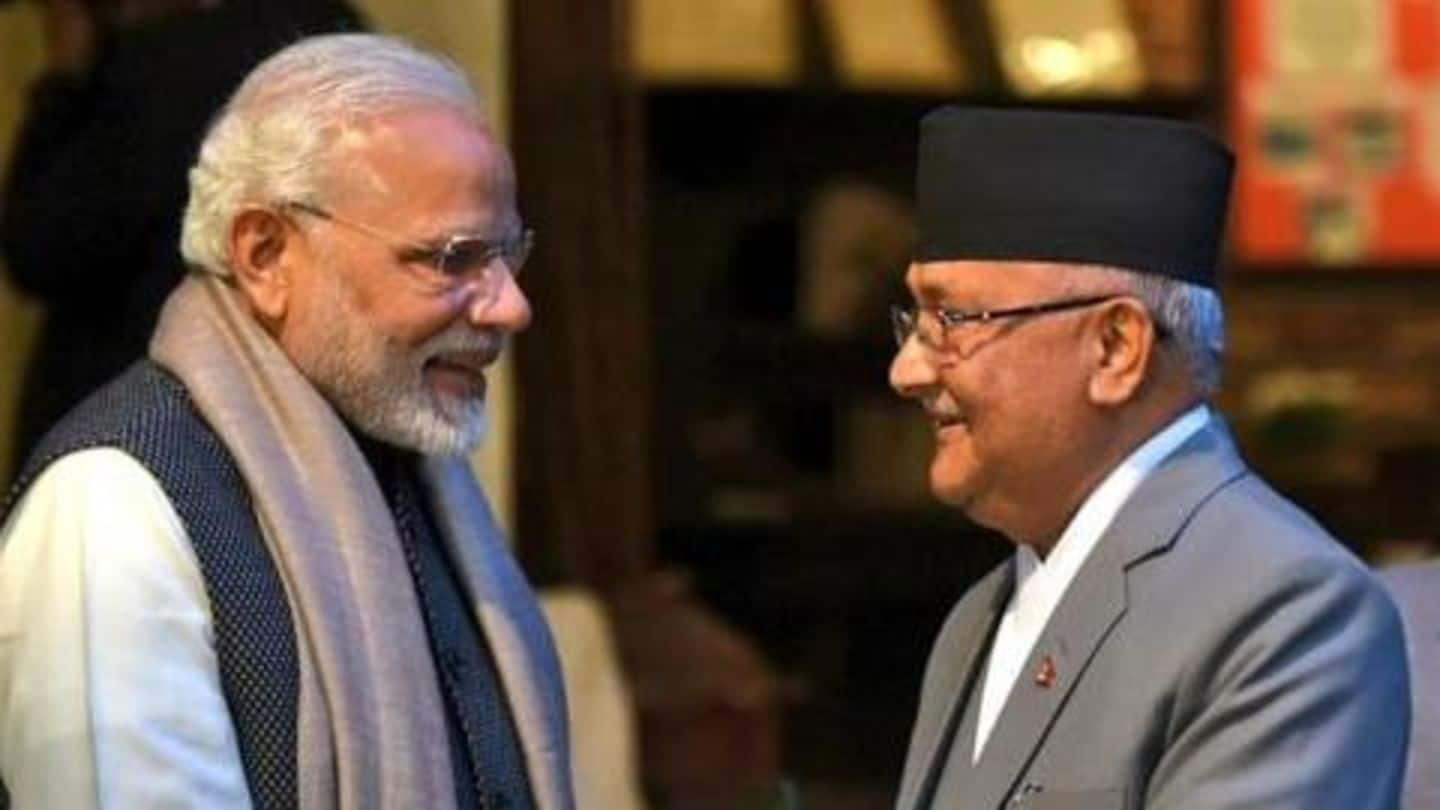
Nepal claims Indian territory in new map, New Delhi responds
What's the story
Nepal released a new political map claiming Indian territories of Limpiyadhura, Lipulekh, and Kalapani, as its own, inviting a sharp rebuke from India on Wednesday.
New Delhi said it will not accept "artificial enlargement of territorial claims" while hoping that Nepal creates a diplomatic atmosphere to settle border disputes.
Meanwhile, a minister from Nepal called the occasion "historically pleasant", while releasing the new map.
New map
Nepal claims highly strategic areas
Nepal and India share a 1,800 km open border. Nepal claims the Lipulekh Pass as part of the 1816 Treaty of Sugauli, which it signed with Britishers to define its Western border with India.
Despite Indian troops being stationed at Limpiyadhura and Kalapani since 1962 Indo-China war, Nepal claims these areas too.
Kathmandu has been protesting the construction of a new road.
Quote
A new road Rajanth Singh inaugurated miffed Nepal
On May 8, Defense Minister Rajnath Singh inaugurated a road joining Lipulekh Pass in Uttarakhand with the Kailash Mansarovar route in China. This didn't sit well with Nepal but the Ministry of External Affairs said the road "lies completely within the territory of India".
Statement
New map will be published in textbooks, said minister
The new map was released by Minister of Land Management Padma Kumari Aryal, who said Prime Minister KP Sharma Oli is committed to protecting the territorial integrity of Nepal.
"It is a historic moment of happiness for the people of Nepal. We will publish the new map and make it a part of the school textbooks," she said.
Oli reflected the same sentiments.
What Oli said
The issue won't be covered up, said Oli
Speaking to parliamentarians in his country, Oli said diplomatic routes will be taken to "bring back" the territories.
"I want to apprise the honorable house that the issue of Limpiyadhura, Lipulekh, and Kalapani won't be covered up, a conclusion will be drawn regarding it," Oli announced.
He also said the Constitution will be amended to formally adopt the new map.
Reaction
In response, India said Nepal's move isn't supported by evidence
Reacting to the matter, Anurag Srivastava, MEA spokesperson, said the act is unilateral and not "based on historical facts and evidence".
He also said the decision went against the bilateral understanding which mandates to solve outstanding boundary issues through dialog.
"We urge the Government of Nepal to refrain from such unjustified cartographic assertion and respect India's sovereignty and territorial integrity," he said.
Coronavirus
Oli went as far as labeling India's virus "more lethal"
New Delhi thinks Oli has fanned tensions with India at China's behest. The Chinese played an important role in securing his position within Nepal's Communist party.
This theory assumes significance as Oli took a softer stand against China on the ongoing pandemic, despite the fact that coronavirus emerged from there.
He claimed the "Indian virus" was more lethal than Chinese and Italian.
Quote
He blamed Indians for spike in cases in Nepal
"Those who are coming from India through illegal channels are spreading the virus in the country and some local representatives and party leaders are responsible for bringing in people from India without proper testing," Oli claimed.
Help
Just last month, India sent essential medicines to Nepal
This development came nearly a month after India sent 23 tonnes of essential medicines to Nepal, and Oli had expressed gratitude too.
A statement from the Indian mission in Kathmandu read, "The consignment, as a gift from the people of India to people of Nepal, includes 8.25 lakh doses of essential medicines, 3.2 lakh doses of Paracetamol and 2.5 lakh doses of Hydroxychloroquine (HCQ)."